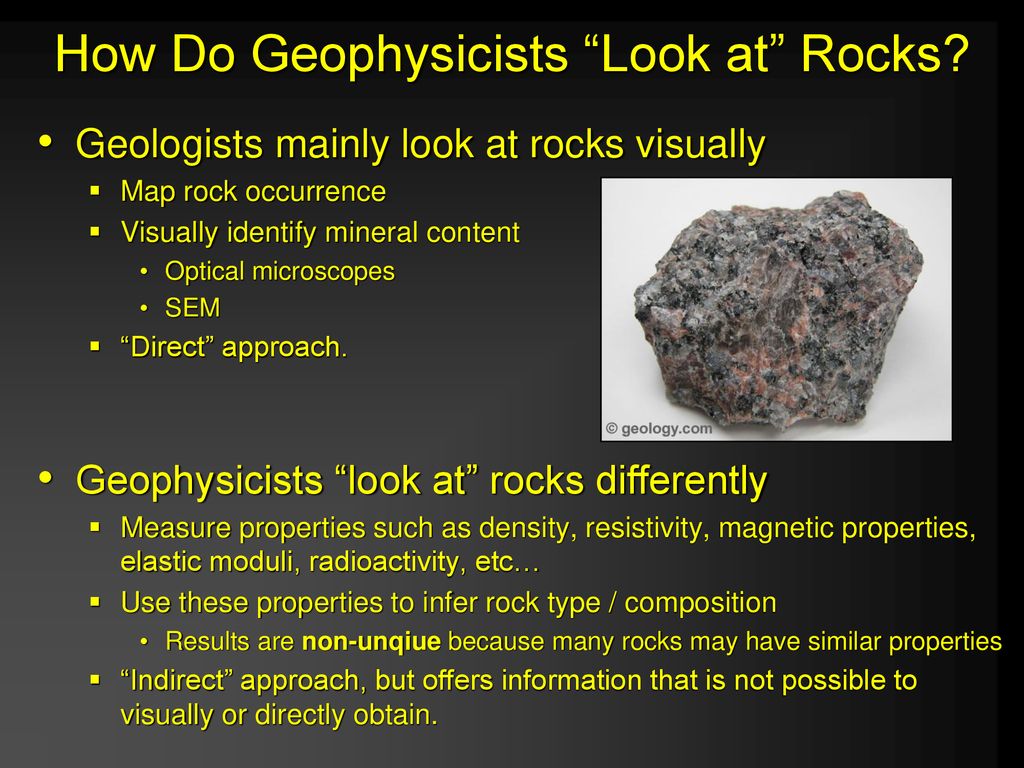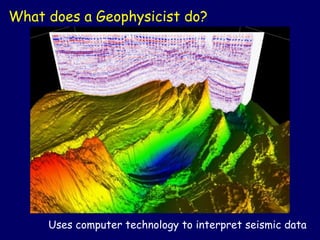All Categories
Featured
Table of Contents
Geophysics in Waterford WA 2023
This work is progressively contracted out, so consultancies supply another source of employment. Consultancy firms differ in size, from really small business to large multinationals. Some consultancies are rather specialised in utilizing specific geophysical methods or operating in particular places, while others provide a more varied series of services to their customers.
The extraction of gas from landfill websites is another location of work and this might grow in the future. Exploration business might undertake work for construction companies, water business, mining companies and environmental agencies, so geophysicists may be used in any of these settings. Other employers consist of: geological surveysgovernment bodies and agenciesuniversities and research institutes.


Jobs may be noted in the oil and gas sector press. Recruitment is affected by oil rate changes and the level of competitors for positions differs depending upon this. Professions Days, which cover the complete series of geoscience professions and are typically gone to by a variety of crucial market companies, are run by The Geological Society.
How To Become A Geophysicist in East Fremantle Aus 2020
Some of the large oil and gas business provide a complete two-year structured training programme across the breadth of geophysics, including the opportunity to experience work in different teams before specialising in one area. Your training may consist of deal with: existing wellsmagnetic and gravitational prospective field data analysisresearchrock analysis. However, it's more normal for your preliminary training to be provided on the job.

There might be a probationary period during which you work alongside an experienced associate. Competency-based appraisals take location routinely in many firms. In smaller firms, and for academic posts, there is unlikely to be any formal training - you'll be anticipated to begin work straightaway and choose up abilities as you go along.
If you work for a smaller sized company, you might find that you require to take duty for arranging and moneying your own development and training. If you have a geology degree, subscription of The Geological Society can be useful for networking and for keeping up to date with the market.
What Does A Geophysicist Do: Duties And Responsibilities in Pickering Brook Aus 2023
You might also find it beneficial to join the PESGB (The Petroleum Exploration Society of Great Britain, which has a geophysics unique interest group. After a probationary period, and when you've gained some experience, you might advance to senior geophysicist, then team leader and then into a senior role in management.
The ease of movement in between roles depends upon the company structure. Study at Masters or Ph, D level in a subject associated to geophysics or geosciences may assist with your profession development and progression. The work market within the oil and gas industry is extremely depending on price and this may affect your opportunities for career progression.
Not all tasks are dependent on the oil and gas markets. For knowledgeable geophysicists, freelance consultancy uses a good route for career development. You can likewise specialise in a particular area of geophysics. As a geophysicist, you're most likely to have a number of jobs throughout your working life. Worldwide mobility is crucial for handling peaks and troughs in various nations at various times.
Geophysics in Kensington Oz 2023
From geophysics, it's possible to focus on seismology (finishing more training to become a seismic interpreter) or to move into associated areas such as engineering geology or danger forecast.
Deciding what to study in college is a difficult choice. Even if you know that your field of interest lies in science, what program of research study is right for you?
The very first step to attaining your goal of becoming a geophysicist is making a degree. Even for entry-level positions in the field of geoscience, you'll need a bachelor's degree (a geophysicist college degree) from a recognized college or university. Geophysicists need to be able to: analyze rocks, pictures, and other pieces of data perform research study both in the field and in laboratories produce maps and charts of their findings write reports To accomplish all this, trainees need a specialized education for geophysicist careers.
As mentioned above, you'll need a bachelor's degree in geoscience or an associated discipline, such as a physical science or a life sciences, to land an entry-level job. Trainees can likewise prepare by majoring in topics like: Biology Chemistry Computer science Engineering Mathematics Physics The above geophysicist majors use a more generalized method to a single clinical discipline, but most programs require students to take one or more geology course.
Latest Posts
Geophysicist - Job Role - Job Information in Mahogany Creek Oz 2023
Integrated Geophysical Surveys For The Safety in Koondoola Oz 2020
What Does A Geologist Do? in Pickering Brook WA 2021